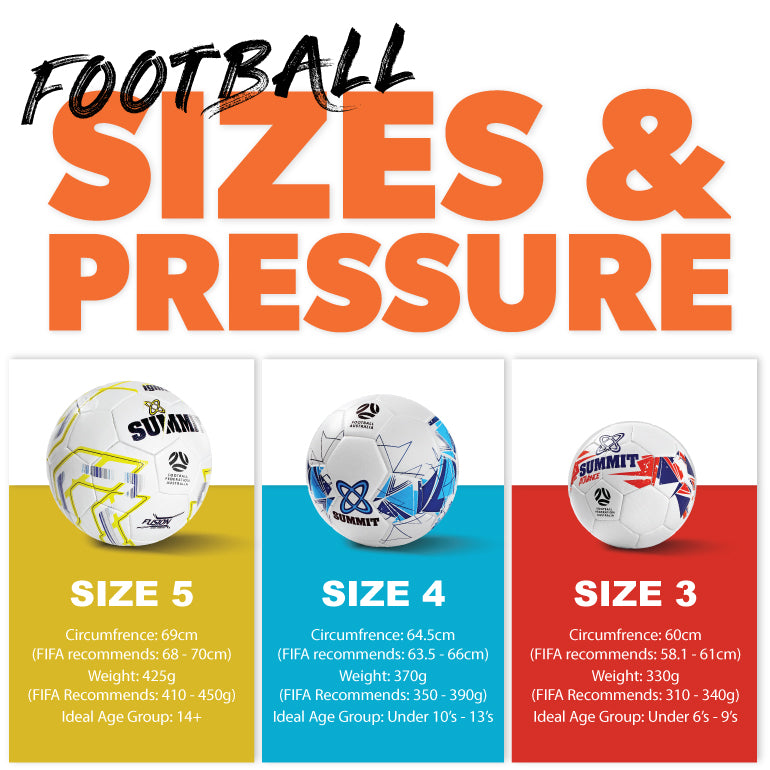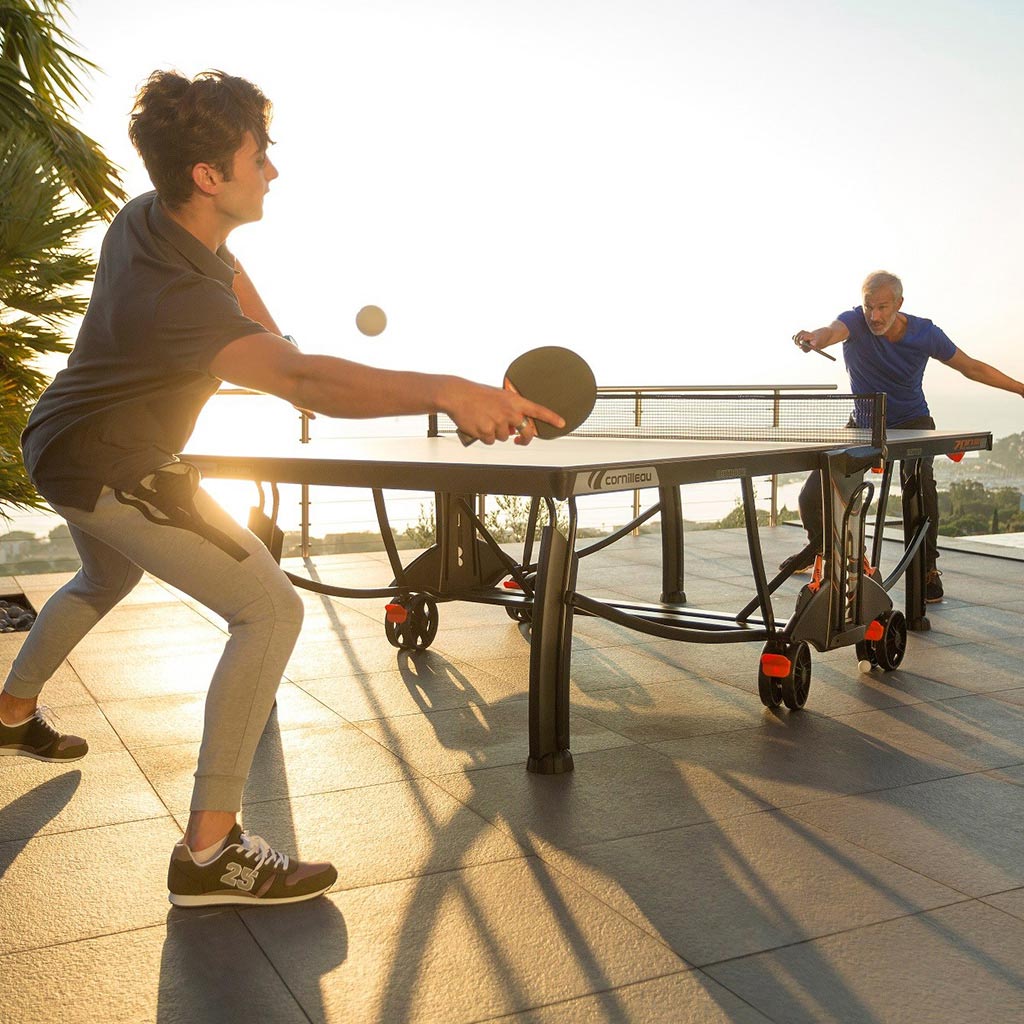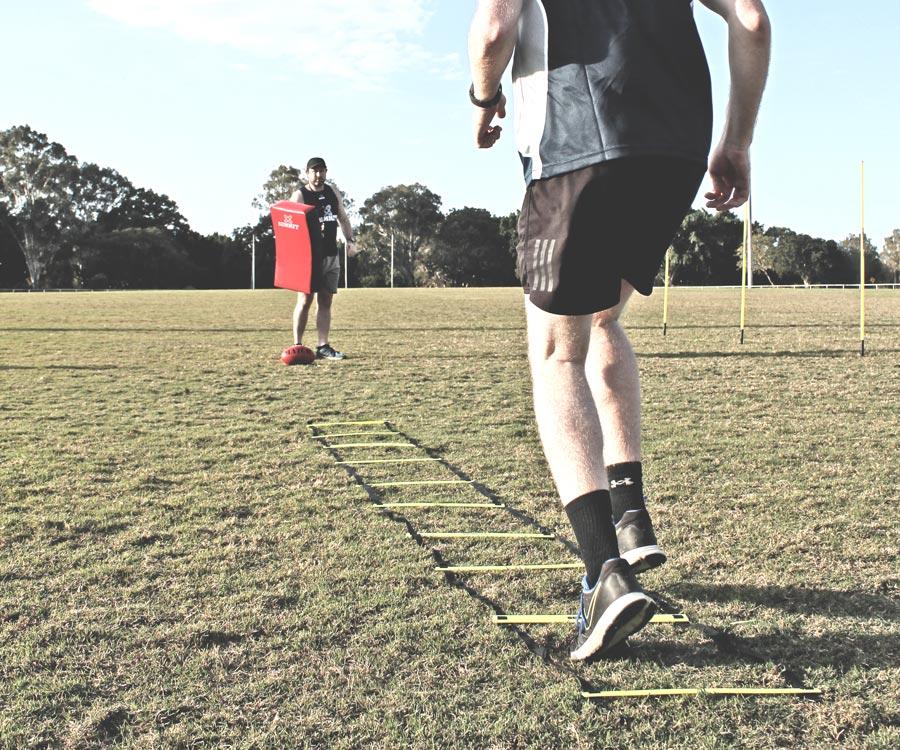
How to choose the right netball 2025
Posted by RICHARD TINKER
Whether you’re a parent, club or school representative, serious club player or casual social player – this guide will help you choose the right netball based on your needs.
How to choose the right netball 2025
Posted by RICHARD TINKER

What's the Right Size Soccer Ball for age in 2025 Season?
Posted by RICHARD TINKER
Learn Correct Size Soccer Ball for Age Groups
Footballs are available in size 5, size 4 and size 3. Which one is right for you?
What's the Right Size Soccer Ball for age in 2025 Season?
Posted by RICHARD TINKER

Official goal sizes for ages in Soccer, Futsal, Tennis, Hockey, Volleyball and more
Posted by RICHARD TINKER
Official goal sizes for ages in Soccer, Futsal, Tennis, Hockey, Volleyball and more
Posted by RICHARD TINKER

Official Table Tennis Table Dimensions and Room Requirements to Play Games
Posted by RICHARD TINKER
What is the Size of a Table Tennis Table? Quickly learn about the official size for Table Tennis Tables in Australia and what size room you will need to easily play a game of Ping Pong. Table Tennis Table Size and Measurements The standard table tennis table measures 274 cm (9.0 ft) in length, 152.5 cm (5.0 ft) in width, and 76 cm (2.5 ft) in height, as specified by International and Australian table tennis regulations. OFFICIAL TABLE TENNIS TABLE SIZE TABLE LENGTH TABLE WIDTH TABLE HEIGHT 274 cm (9.0 ft) 152.5 cm (5.0 ft) 76 cm (2.5 ft) For more details on...
Official Table Tennis Table Dimensions and Room Requirements to Play Games
Posted by RICHARD TINKER

5 Things to know when you are Shopping for a Table Tennis Table
Posted by SUMMIT TEAM
5 Things to know when you are Shopping for a Table Tennis Table
Posted by SUMMIT TEAM

Table Tennis Tables and the game of Ping Pong
Posted by RICHARD TINKER
Interesting things to learn about Table Tennis Tables and the game of Ping Pong Summary: Playing Table Tennis? You should. How to Look After a Table Tennis Table Do I need a Table Tennis Cover? Are all Table Tennis Tables the same? What is the difference between European and Asian made tables? This article doesnt talk about shopping for table tennis tables. If you want to find out what is important when shopping for a Table Tennis Table, we recommend reading this post here. Playing Table Tennis? You should, it is fun and good for you! Nearly everyone has played...
Table Tennis Tables and the game of Ping Pong
Posted by RICHARD TINKER

Q&A with Geelong Cats Georgie Prespakis
Posted by SUMMIT TEAM
Interview with AFL's Geelong Cats Georgie Prespakis Despite only having played three seasons of AFLW, Georgie has already won and come runner up in the Geelong Cats AFLW Best and Fairest, as well as having been named All Australian in just her second year. Now having committed long term to the Gelong Cats, the reigning B&F is set to be the centrepiece for their next premiership. Georgie is a SUMMIT Sport ambassador and uses SUMMIT training products. How did you get into AFL? I started my footy career playing at Romsey Football Club alongside the boys up until Under 14’s...
Q&A with Geelong Cats Georgie Prespakis
Posted by SUMMIT TEAM

PROFESSIONAL GUIDE: HOW TO ASSEMBLE A TABLE TENNIS BAT AT HOME
Posted by SUMMIT TEAM
STEP-BY-STEP GUIDE: HOW TO GLUE, CUT AND ASSEMBLE A TABLE TENNIS BAT AT HOME. Welcome to our detailed guide on assembling your own table tennis bat! Whether you're a beginner or experienced player looking to customise your equipment, this tutorial will walk you through the process. Make sure to watch the accompanying video to see each step in action. Most people don't know that you can have Table Tennis bats made to order. By choosing the exact type of blade and rubber, you can tailor the bat to your playing style - defensive, aggressive, spin and more. With this easy...
PROFESSIONAL GUIDE: HOW TO ASSEMBLE A TABLE TENNIS BAT AT HOME
Posted by SUMMIT TEAM

Portable Soccer Goal Safety | Australian Government Standards You Need to Know
Posted by RICHARD TINKER
Portable Soccer Goal Safety | Australian Government Standards You Need to Know
Posted by RICHARD TINKER

Netball Guide | Learn everything about the Game of Netball
Posted by RICHARD TINKER
Netball Guide | Learn everything about the Game of Netball
Posted by RICHARD TINKER

PVC and Plastic goals: your childs safety, legal responsability and why they are not the best choice
Posted by RICHARD TINKER
PVC and Plastic goals: your childs safety, legal responsability and why they are not the best choice
Posted by RICHARD TINKER

PORTABLE GOALS & TARGETS: Aluminium/Steel
Posted by RICHARD TINKER
PORTABLE GOALS & TARGETS: Aluminium/Steel
Posted by RICHARD TINKER

AFL agility drill for the advanced players
Posted by RICHARD TINKER
AFL agility drill for the advanced players
Posted by RICHARD TINKER

Informative Guide to Soccer Goals for Home and Recreational use
Posted by RICHARD TINKER
Informative Guide to Soccer Goals for Home and Recreational use
Posted by RICHARD TINKER

PORTABLE GOALS & TARGETS: Four Pillar
Posted by RICHARD TINKER
PORTABLE GOALS & TARGETS: Four Pillar
Posted by RICHARD TINKER

Sports rebound nets, crazy reflex nets used for catching, kicking and training
Posted by RICHARD TINKER
Sports rebound nets, crazy reflex nets used for catching, kicking and training
Posted by RICHARD TINKER

What is the best goal for Football Clubs, Schools and Associations
Posted by RICHARD TINKER
What is the best goal for Football Clubs, Schools and Associations
Posted by RICHARD TINKER

Respect to Referees: Green Whistles are a Win!
Posted by RICHARD TINKER
Respect for Referees in Sports: Green Whistles are a Win!
Basketball Victoria says: “IF THEIR WHISTLE IS GREEN, THEY ARE UNDER 18“. We discuss the importance of junior referees in sport and what we can do to improve our game.
Respect to Referees: Green Whistles are a Win!
Posted by RICHARD TINKER

THE GUIDE TO POP-UP PORTABLE GOALS & TARGETS
Posted by RICHARD TINKER
THE GUIDE TO POP-UP PORTABLE GOALS & TARGETS
Posted by RICHARD TINKER

How do you choose a Soccer Ball? Learn what you need to know
Posted by RICHARD TINKER
How do you choose a Soccer Ball? Learn what you need to know
Posted by RICHARD TINKER


